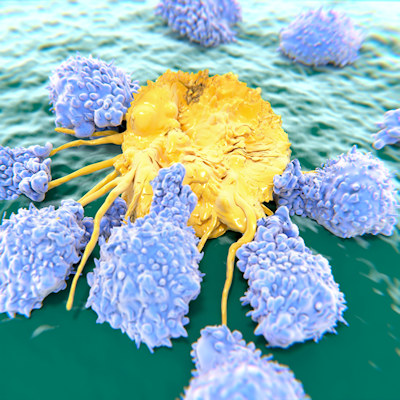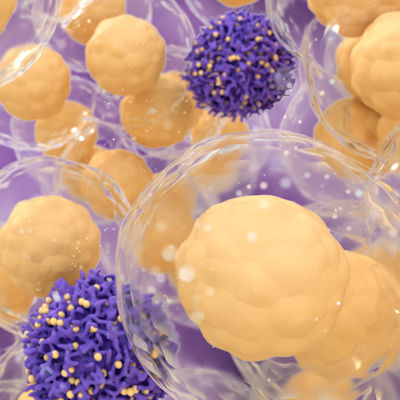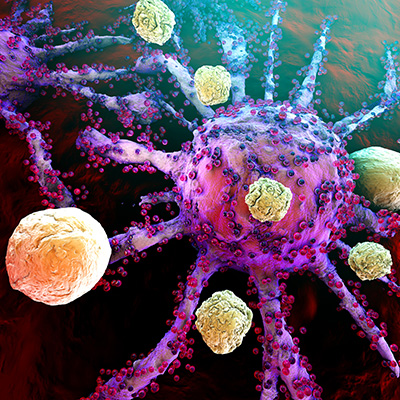November 8, 2022 -- Using DNA barcodes, scientists at Australia’s Garvan Institute of Medical Research have revealed how cancer cells can evade the immune system and render immunotherapies ineffective.
In a study published November 7 in the journal Nature Communications, the researchers describe their attempt to understand why some solid tumors, including breast cancer, are largely nonresponsive to immune checkpoint inhibitors such as Merck & Co.'s Keytruda. Checkpoint inhibitors reactivate tumor immunity in some cancers, thereby improving outcomes, but not in others.
"We know that breast cancer typically doesn't respond well to immunotherapy, and we wondered if there's an intrinsic mechanism enabling breast cancer cells to escape the immune system," first author Louise Baldwin, a PhD student in associate professor Alex Swarbrick's lab at Garvan, said in a statement. "We showed that there are rare cancer cells capable of escaping the immune system and escaping treatment with immunotherapy."
To learn why breast cancer is often resistant to immunotherapy, the researchers used DNA barcoding to track the progression of tumor cells through time. The team tracked murine mammary cancer cell clones during immunoediting to determine the clonal transcriptional profiles that allow immune evasion after treatment with a combination of checkpoint inhibitors that target PD-1 and CTLA-4.
By barcoding DNA, the researchers were able to track the lineage of cells by looking for a sequence. The approach enabled the team to see the origins of more aggressive, resistant cells. In doing so, the team showed that some cancer cells acquired the ability to evade immunity before treatment. After treatment with a checkpoint inhibitor, the cells with the innate ability to escape the immune system survive and continue to grow and spread.
Ongoing immunoediting, the process through which cancer cells evolve to evade the immune system, during metastasis and treatment also contributes to the resistance of some tumor types to checkpoint inhibitors. Interactions between the tumor and immune cells destroy many cancerous cells but leave some undetected and unharmed.
The study showed that "immunotherapy resistant clones express a common gene signature associated with poor survival of basal-like breast cancer patient cohorts." The pathway of at least one common immunotherapy resistance gene, PPP1R15A, is already targeted by an existing small molecule, Sephin-1.
Using Sephin-1 to target the pathway, which has a known role in immunogenic cell death in response to chemotherapy, could synergize with immunotherapy or immunogenic chemotherapy and thereby improve outcomes in patients with breast cancer and other resistant tumor types. Further work is needed to show if Sephin-1 or other molecules work synergistically with immunotherapies.
Copyright © 2022 scienceboard.net










